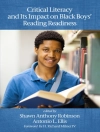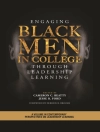Focusing on the highly diverse Karenni refugee population living in camps on the Thai-Burma border, this innovative book explores materiality, embodiment, memory, imagination, and identity among refugees, providing new and important ways of understanding how refugees make sense of experience, self, and other. It examines how and to what ends refugees perceive, represent, manipulate, use as metaphor, and otherwise engage with material objects and spaces, and includes a focus on the real and metaphorical journeys that bring about and perpetuate exile.
The combined emphasis on both displacement and materiality, and the analysis of the cultural construction and intersections of exilic objects, spaces, and bodies, are unique in the study of both refugees and material culture. Drawing theoretical influences from phenomenology, aesthetics, and beyond, as well as from refugee studies and anthropology, the author addresses the current lack of theoretical analysis of the material, visual, spatial, and embodied aspects of forced migration, providing a fundamentally interlinked analysis of enforced exile and materiality.
Tabella dei contenuti
Figures
Preface
Acknowledgements
Abbreviations
Chapter 1. Materialising Exile and Karenni Refugees: An Introduction
The Sensoriality and Materiality of Exile
Continuity with Past Times and Places
Being at Home, Being in Place
The Karenni
Materialising Exile: Refugee Studies, Material Culture Studies and Beyond
Chapter 2. In-Between: Being a Karenni Refugee
Burmese Refugees in Thailand
The Karenni Camps
Being a Refugee: Self-Perceptions
Material Forms, Bodies and Sense
Experience in Being a Refugee
Coping With Life in the Camps: Habit and Consuming Time Liminality
Chapter 3. Inside/Outside: Refugee Journeys
Journeys to and from the Camps
Cross-Border Movement and Knowledge
Forms of Knowledge and Emotional Response
Memory and Feeling in Journey Narratives
Journeying as Normal Landscape, Senses, Bodies and Things
Chapter 4. Remembering, Forgetting and Imagining the Pre-exile Past
Dress and Connections with the Past
Dïy-küw and Thoughts of Home
Moving Beyond Rupture
Chapter 5. Coping and (Re)constructing ‘Home’ in Displacement
Wider Contexts and Influences … and T-shirts
Objects, Landscapes, Bodies: Metaphors and Foils for Experience
Making Things, Making Place, Making Self
Becoming ‘At Home’ in Exile
Chapter 6. Materialising Home and Exile
Conceptions of Home
Continuity and Change
Exilic Objects and Bodies
Feeling Right With and In the World
Bibliography
Index
Circa l’autore
Sandra Dudley has worked with and on Karenni refugees since 1996, completing her doctorate in Social Anthropology at the University of Oxford in 2001. She is currently a Lecturer in the Department of Museum Studies, University of Leicester, having previously taught at Oxford and UEA and worked at the Pitt Rivers Museum.












